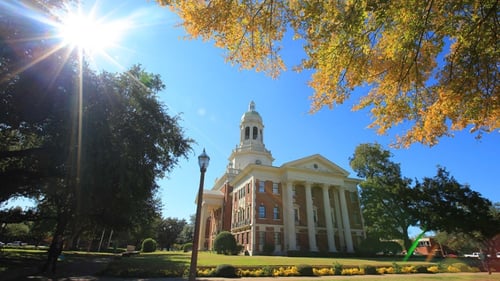As someone who is passionate about impacting change in the field of social work, you may be wondering what you need to do in order to land a career that will allow you to make a tangible difference in the world.
You may be wondering: Is a Bachelor of Social Work (BSW) enough to jumpstart a social work career? Or is a Master of Social Work (MSW) needed in order to successfully transform the lives of the under-served communities you’re trying to impact?
Allow us to examine the differences between a BSW and an MSW and ultimately, highlight why future leaders in social work need to consider obtaining a master's in social work in order to develop the skills to impact real change in the field.
What is a BSW?
A BSW is an undergraduate professional degree that is a typical requirement of many agencies for entry-level or direct-service positions such as case management.
The courses taken in a BSW program provide a generalist-practice foundation of social work. Courses include social work practice (with individuals, families, groups, communities, and organizations) and human behavior in social environments. Coursework and an internship are both required in order to complete the BSW program at Baylor University.
In short, by providing a general overview of the field of social work, obtaining a BSW is often the first step in a prospective social worker’s journey, with further graduate-level education and licensing being required for most leadership positions as well as clinical work.
Note: If a student obtains a BSW, they may be eligible for an advanced standing program, which allows students to complete Baylor’s MSW in 10 months.
What is an MSW?
An MSW is a valued, mission-oriented graduate degree that emphasizes research, takes an integrated, holistic approach to the discipline of social work, and prioritizes real-world learning opportunities — all with the goal of graduating professionals who have the tools and knowledge needed to be fantastic leaders in the field.
Specifically, in Baylor’s Diana R. Garland School of Social Work, MSW students also have the opportunity to specialize in one area of social work: clinical or community practice. Additionally, MSW students have the opportunity to pursue a concentration. By choosing a specialization and/or a concentration, MSW students develop a sought-after knowledge base in one area of social work practice, making MSW graduates valuable in the workforce.
Note: Thinking about getting an MSW but don't have a BSW? Explore 5 Undergraduate Degrees that Will Complement Your MSW.
BSW vs. MSW:
While a BSW will prepare professionals for entry-level positions in the field, an MSW provides many more opportunities for direct practice and paves the way to becoming a Licensed Clinical Social Worker (LCSW) and a Licensed Master of Social Work (LMSW).
Those holding an MSW can also expect several other benefits including higher pay, a greater competitive edge in the job market, and more opportunities for advancement. In fact, according to the Bureau of Labor Statistics, between 2010-2030, the overall projected employment for social workers is expected to grow 12 percent, which is much faster than the national average.
Further, here some of the median social work salaries reported by the Bureau of Labor Statistics in May of 2020:
- Hospitals (state, local, and private) - $57,660
- Healthcare social workers (general) - $52,850
- Local government (excluding education and hospitals) - $49,860
- Child, family, and school social workers - $48,430
- Mental health and substance abuse social workers - $48,720
Once you have completed your Master of Social Work degree, there are several social work careers that pay well, while still offering you the opportunity to make a meaningful difference in the lives of individuals and communities. MSW holders can pursue careers such as:
- Clinical Social Worker
- Psychiatric Social Worker
- Child and Family Social Worker
- Abuse Social Worker
- School Social Worker
- Community Social Worker
- Group Social Worker
- Health Educator
- Public Policy Social Worker
Join a community of mission-driven professionals who are getting an MSW at Baylor University.
In the Diana R. Garland School of Social Work at Baylor University, we believe that social work is about service and justice, healing and restoration, and the dignity of each individual. Through innovative academics and experiential learning opportunities, we strive to train and equip social work professionals to evaluate, diagnose, treat, and support the needs of their clients through the ethical integration of faith and practice.
If you are ready to jumpstart your future as a change-maker in the field of social work, we encourage you to request more information or start your application today!

















